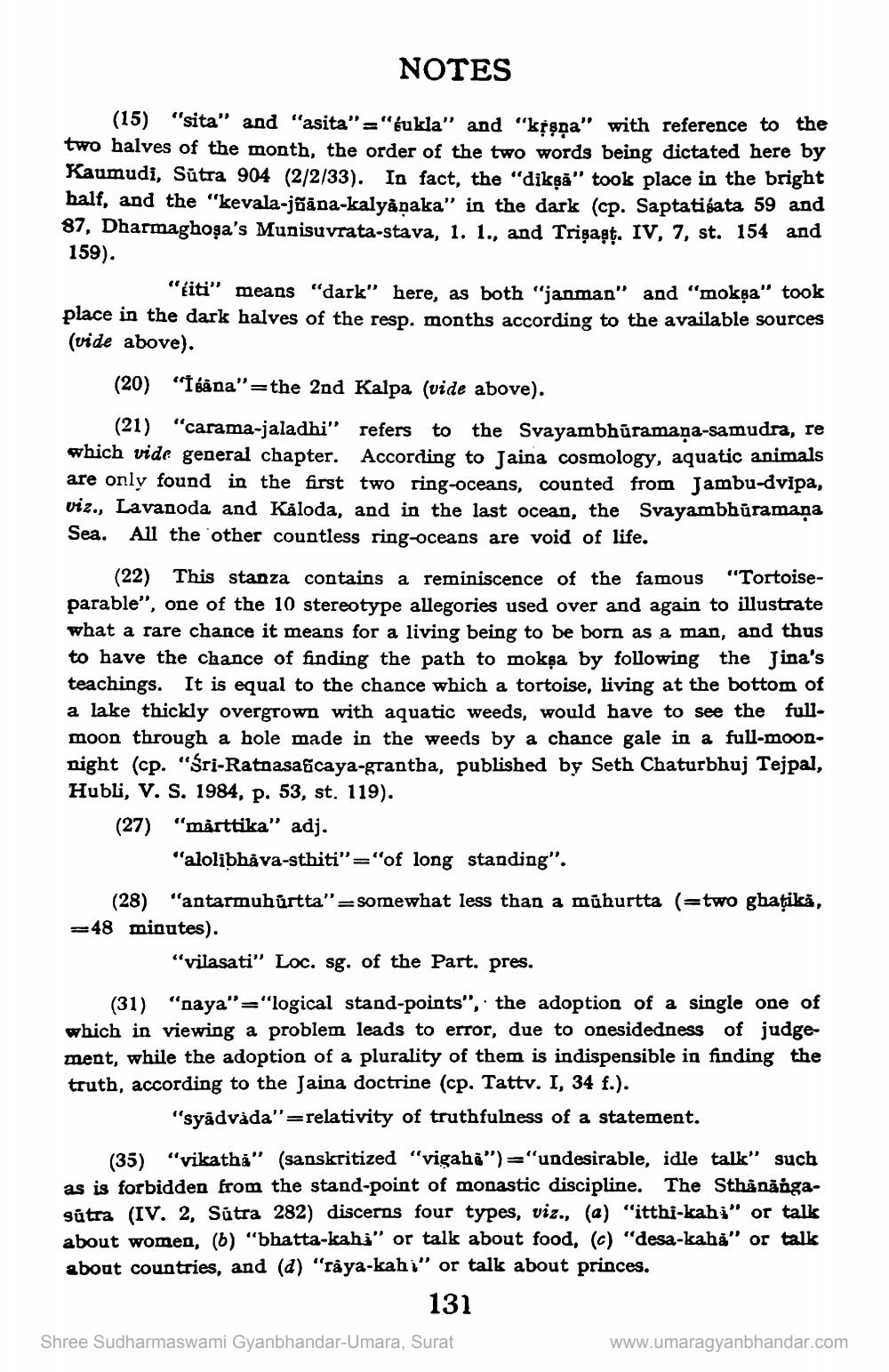________________
NOTES
(15) "sita" and "asita" = "çukla" and "kissa" with reference to the two halves of the month, the order of the two words being dictated here by Kaumudi, Sūtra 904 (2/2/33). In fact, the "dikga" took place in the bright half, and the "kevala-jõäna-kalyåpaka" in the dark (cp. Saptatigata 59 and 87, Dharmaghoga's Munisuvrata-stava, 1. 1., and Trişaạt. IV, 7, st. 154 and 159).
"fiti" means "dark" here, as both "janman" and "mokşa" took place in the dark halves of the resp. months according to the available sources (vide above).
(20) “Íśåna"=the 2nd Kalpa (vide above).
(21) "carama-jaladhi” refers to the Svayambhuramaņa-samudra, re which vide general chapter. According to Jaina cosmology, aquatic animals are only found in the first two ring-oceans, counted from Jambu-dvipa, viz., Lavanoda and Kåloda, and in the last ocean, the Svayambhuramana Sea. All the other countless ring-oceans are void of life.
(22) This stanza contains a reminiscence of the famous "Tortoiseparable", one of the 10 stereotype allegories used over and again to illustrate
chance it means for a living being to be born as a man, and thus to have the chance of finding the path to mokşa by following the Jina's teachings. It is equal to the chance which a tortoise, living at the bottom of a lake thickly overgrown with aquatic weeds, would have to see the fullmoon through a hole made in the weeds by a chance gale in a full-moonnight (cp. "Sri-Ratnasascaya-grantha, published by Seth Chaturbhuj Tejpal, Hubli, V. S. 1984, p. 53, st. 119). (27) "mårttika" adj.
"alolibhåva-sthiti"="of long standing".
(28) "antarmuhurtta"=somewhat less than a mühurtta (=two gbatika, =48 minutes).
"vilasati" Loc. sg. of the Part. pres.
(31) "naya"="logical stand-points", the adoption of a single one of
viewing a problem leads to error, due to onesidedness of judgement, while the adoption of a plurality of them is indispensible in finding the truth, according to the Jaina doctrine (cp. Tattv. I, 34 f.).
"syadváda"=relativity of truthfulness of a statement.
(35) "vikatha" (sanskritized "vigaha")="undesirable, idle talk" such as is forbidden from the stand-point of monastic discipline. The Sthånăngasútra (IV. 2, Sutra 282) discerns four types, viz., (a) "itthi-kabi" or talk about women, (6) "bhatta-kaha" or talk about food, (c) "desa-kahä" or talk about countries, and (d) "raya-kahi" or talk about princes.
131
Shree Sudharmaswami Gyanbhandar-Umara, Surat
www.umaragyanbhandar.com




